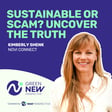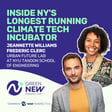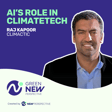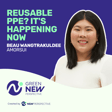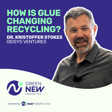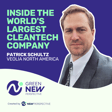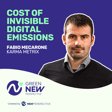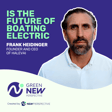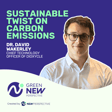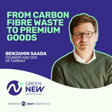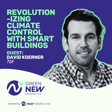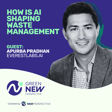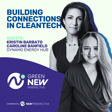
Embracing ESG Principles in Cleantech: Podcast With Gerald Leonard
We tackle the critical issue of sustainability in business with Gerald J Leonard, CEO of Turnberry Premiere. Gerald explains the importance of embedding eco-friendly strategies into corporate frameworks. We’re sharing practical tips on measuring the impact of sustainability efforts with science-based targets and certified metrics, and advice on integrating sustainability strategies without losing profits, focusing on smart budget allocation, thorough cost-benefit analysis, and getting senior leadership on board.
Join us to discover how these strategies can lead to long-term environmental success while maintaining financial viability.
📚 RESOURCES & LINKS
========================
- Website: https://turnberrypremiere.com/
- LinkedIn: https://www.linkedin.com/in/geraldjleonard/
👉 Interview with Gerald J Leonard: https://www.npws.net/podcast/esg-cleantech-business
🌍 SUSTAINABILITY PODCAST CREATED BY NEW PERSPECTIVE
========================
This podcast is proudly sponsored by New Perspective Marketing, a dynamic growth marketing agency in Boston, MA, celebrating 20 years in business. We help sustainably focused B2B organizations grow their brands and scale up revenue. If you or your organization is looking to grow, visit npws.com for more info.
🎧 SUBSCRIBE TO OUR PODCAST
===========================
- Spotify: https://bit.ly/3PSWIyI
- Apple Podcasts: https://bit.ly/3RvlHte
- Youtube: https://bit.ly/3RDzkXg
- Deezer: https://bit.ly/3PvQaof
- Amazon Music: https://bit.ly/3PQlijS
- Zencastr: https://bit.ly/48xt75s
💬 FOLLOW US ON SOCIAL MEDIA
============================
- Instagram: https://www.instagram.com/greennewperspective/
- Twitter: https://twitter.com/gnperspective
- LinkedIn: https://www.linkedin.com/company/new-perspective-marketing/
- Facebook: https://www.facebook.com/greennewperspective
- TikTok: https://www.tiktok.com/@greennewperspective
Host: Dunja Jovanovic
Executive Producer: Marko Bodiroza
Creator: Nathan Harris
#cleantech #sustainability #podcast
